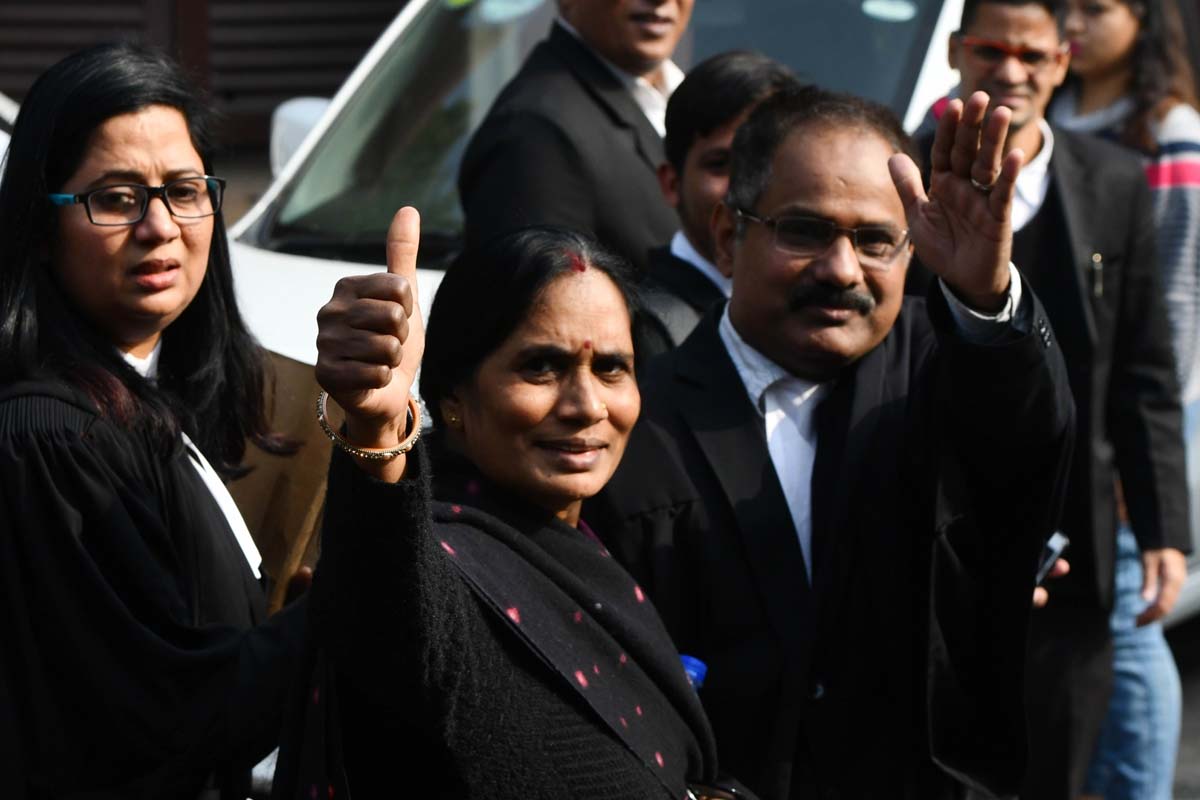Drunk riders fall off flyover in Delhi
A tragic accident occurred on Geeta Colony flyover, resulting in one fatality and another person sustaining serious injuries, police said on Sunday.
The Nirbhaya case, which is gradually reaching its logical conclusion, however, also opens up the debate on the continuance of the death penalty in a democracy.

Parents of the December 16 gangrape victim outside the Supreme Court after the hearing of a review plea filed by one of the four men convicted in the 2012 Delhi Nirbhaya gang-rape and murder case, in New Delhi on Dec 18, 2019. The Supreme Court on Wednesday dismissed the petition of Akshay Kumar Singh, one of the four convicts on death row, seeking review of death penalty handed down to him in Nirbhaya gang-rape and murder case. (Photo: IANS)
Seven years after the horrific gangrape and murder of a 23-year-old paramedical student in Delhi, the four remaining convicts in the case will be hanged on January 22 with a court on Tuesday issuing death warrants against them. Now the only legal recourse left to the convicts is a curative petition in the Supreme Court which has already dismissed their review petitions. Or they move the President for mercy.
The execution will bring much needed closure to the parents of the victim who have been fighting a tireless battle to secure justice for their daughter who was tortured and brutalised on the night of 16 December 2012. The Nirbhaya case sparked nationwide outrage and led to the adoption of tough new laws to deal with cases of sexual violence. Unfortunately, this has not proved to be a real deterrent as such cases have only been on the rise, the recent brutal gangrape and murder of a Hyderabad veterinarian being a case in point.
Advertisement
There the alleged perpetrators were killed in a suspicious encounter. The lengthy trial in the Nirbhaya case and other such cases, despite allegedly being fast-tracked, according to activists, only fuels more violent crime against women. More importantly, have any active steps been taken to improve women’s safety? The Nirbhaya Fund set up by the government with a corpus of Rs 1,000 crore for empowerment and safety of women and girl children is lying virtually unused.
Advertisement
The bus stop from which the paramedical student took the illfated bus ride still remains unlit and dangerous. Little has been done to educate the boy child about the need to respect girls and women. In a country where the birth of a girl child is still an unbearable burden in some regions, there is little hope of women escaping the cycle of violence and exploitation that for many is their only lot.
The Nirbhaya case, which is gradually reaching its logical conclusion, however, also opens up the debate on the continuance of the death penalty in a democracy. Most of the civilised world has abolished capital punishment, and according to critics of the death penalty it is not a real deterrent for heinous crime. Between 2000 and 2015 the Supreme Court imposed 60 death sentences but subsequently admitted that it had erred in 15 of the cases.
Also most of those punished are the poor and marginalised with no recourse to the best legal aid. The counterpoint is that there are some acts which are so vile that they justify taking away the right to life. Mahatma Gandhi is quoted as saying an “eye for an eye will only make the world go blind” but in the land of the Mahatma the first multiple hanging will be held on 22 January when the four Nirbhaya convicts are hanged to death at 7 a.m.
Advertisement